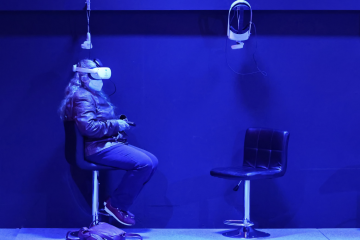The National League for Democracy Party won a landslide victory in November 2015’s general elections, heralding Burma’s plea for democracy. Burma developed from British colonial rule with a limited foundation of parliamentary democracy, but like many post-colonial countries, it was unable to consolidate pre-colonial institutions into a democracy. The country’s complex multi-ethnic society contributed to difficulties in developing a sense of national identity. In 1962, Burma’s lack of political and civil institutions, an uncompetitive centralized economy, and increasing strife among ethnic minorities combined to allow for the country’s strongest institution – the military – to gain and maintain power. However, in 2015, the military lost control. The NLD has now replaced a military controlled government for the first time since 1962, with one of the world’s leading democratic lights – Aung Sang Suu Kyi – wielding the most control in government. Yet, Burma’s recent implementation of free and fair elections, undoubtedly a positive step towards their democratic consolidation, is by no means an end in itself.
Aung Sang Suu Kyi’s recent electoral victory is a case of historical recurrence. Burma witnessed a fight for democracy in summer of 1988 when thousands were brutally killed for their plea to end military rule. The ensuing NLD victory was discounted, and the majority of political opposition leaders, including Aung Sang Suu Kyi, were imprisoned. Recent political reforms, however, which aim at returning Burma to the international scene – those leading to the acquiescence of the military in favor of a civilian regime in 2011 – have rightly been lauded as concrete evidence of Burmese democratization. The NLD’s resounding victory, combined with the release of political prisoners, economic liberalization, and the re-emergence of Aung Sang Suu Kyi into the political sphere, thus denotes a movement toward democratic consolidation.
Nevertheless, inert obstacles remain. The Burmese constitution embodies the chief impediment to democratization. Drafted by the military in 2008, the constitution pledges 25% of parliamentary seats to the military and 75% of parliamentarians to amend the constitution; thus safeguarding of the constitution from amendment. Article 59 F also prevents the country’s presidency from anyone with a foreign spouse or children; Aung Sang Suu Kyi, whose husband and children are British, is therefore barred from the Presidency. However, negotiations between Aung Sang Suu Kyi and the military to remove the clause barring her from presidency are reported to be going well. In separate broadcasts in February, Sky Net and Burma’s National Television reported that “positive results could come out on the negotiation for the suspension of the constitution article 59 (f).” If negotiations fail, Aung San Suu Kyi has promised to run the country from behind the scenes.
Moreover, increasing strife between ethnic communities and the government poses a threat to democratic consolidation. The Constitution offers little protection for the 135 Burmese ethnic groups that have historically enjoyed autonomous polities that were left untouched by Burmese rule. The military’s nationalist centralized agenda of cultural assimilation, one that promotes Burmese language and Buddhism over other languages and religions, has exacerbated tensions and caused deep resentment of the government. Aung San Suu Kyi, recognizing this important hurdle to her country’s democratization, wrote, “Our ethnic nationalists still harbor a deep feeling of mistrust of the majority Burmese…In trying to build up a strong union, our greatest challenge will be to win the confidence of those who have only known repression and discrimination.”
Despite clear obstacles remaining, the consolidation of Burma’s democracy seems likely. The recent 2015 election signals Burma’s desire for genuine democracy, as advocated by Aung Sang Suu Kyi. Full democratization can however only emerge once the NLD has formed a government that engages both the military and ethnic groups. Since peace is a necessary precondition for democratization, a consensus must be reached. The focus must therefore shift from Aung Sang Suu Kyi’s victory towards the future of Burma’s democracy. The pragmatic multilateral dialogue between the NLD, the military, and ethnic communities, is expediting a movement toward greater Burmese democratization and ultimately democratic consolidation, however, the consolidation of Burma’s democracy hinges on the cooperation of these three political actors.




